How democratic is UU?
‘Students ask for more democracy, but most of them don’t know about the councils’
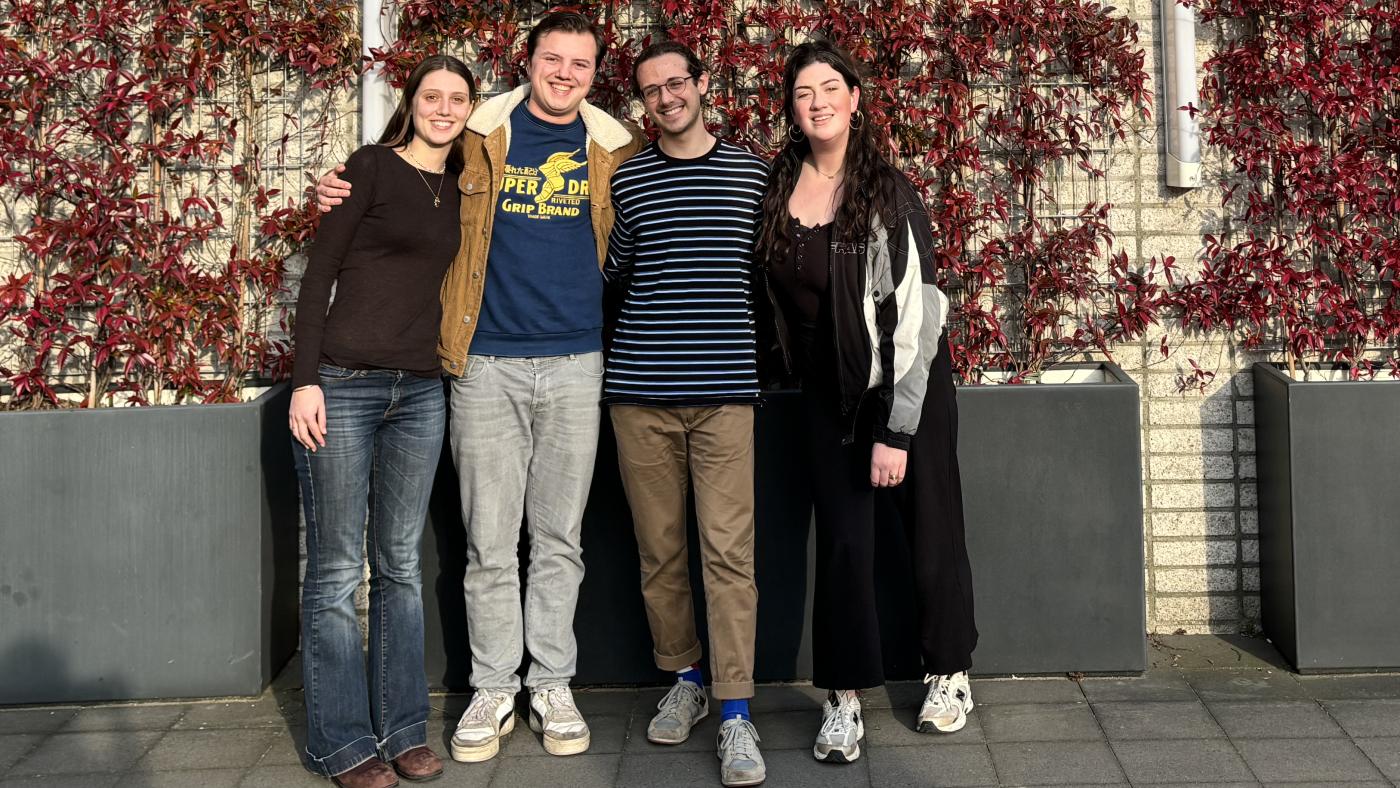
"You guys don't have an actual say," said a student about the student members of the University Council, during one of the debates held in the occupation of the city centre library’s dining hall, back in February. “Democracy is hard to find [at UU] and the structures to participate are not accessible,” added Bobbie, a spokesperson for End Fossil: Occupy, one of the organisations behind the occupation. Although student council members are supposed to represent the interests of the student community, some students find that the existing structure does not accomplish that. They feel as though their voices are not sufficiently taken into account.
UU Council members Matias Edelstein and Teresa Pappalardo (representing the Vuur party) attended the protest at the library to listen to the complaints. To Pappalardo, the frustration makes sense given the university’s responsiveness – or lack thereof. “Sometimes students raise their opinions through petitions, organised discussions or protests, but they do not really get a response. The answer may be negative, but to keep that conversation open is super important. Otherwise, students feel and are unheard.”
On the other hand, many are ignorant of the representative structure available. “Students ask for more democracy, but most don’t know anything about the faculty councils, the university council, and the committees representing student interests. I wouldn’t say it is the most influential democracy, but democracy does exist at UU,” argues Stan Janse (PvdUS). “There are 40,000 students at the university, people with varying opinions,” he continues. “There is the activist side, comprised of students who are heavily involved and have strong opinions which should be heard. But many students do not feel as strongly and they should be heard as well. How do you keep the middle ground? How do you ensure you represent everyone and not just listen to the loudest voices?”
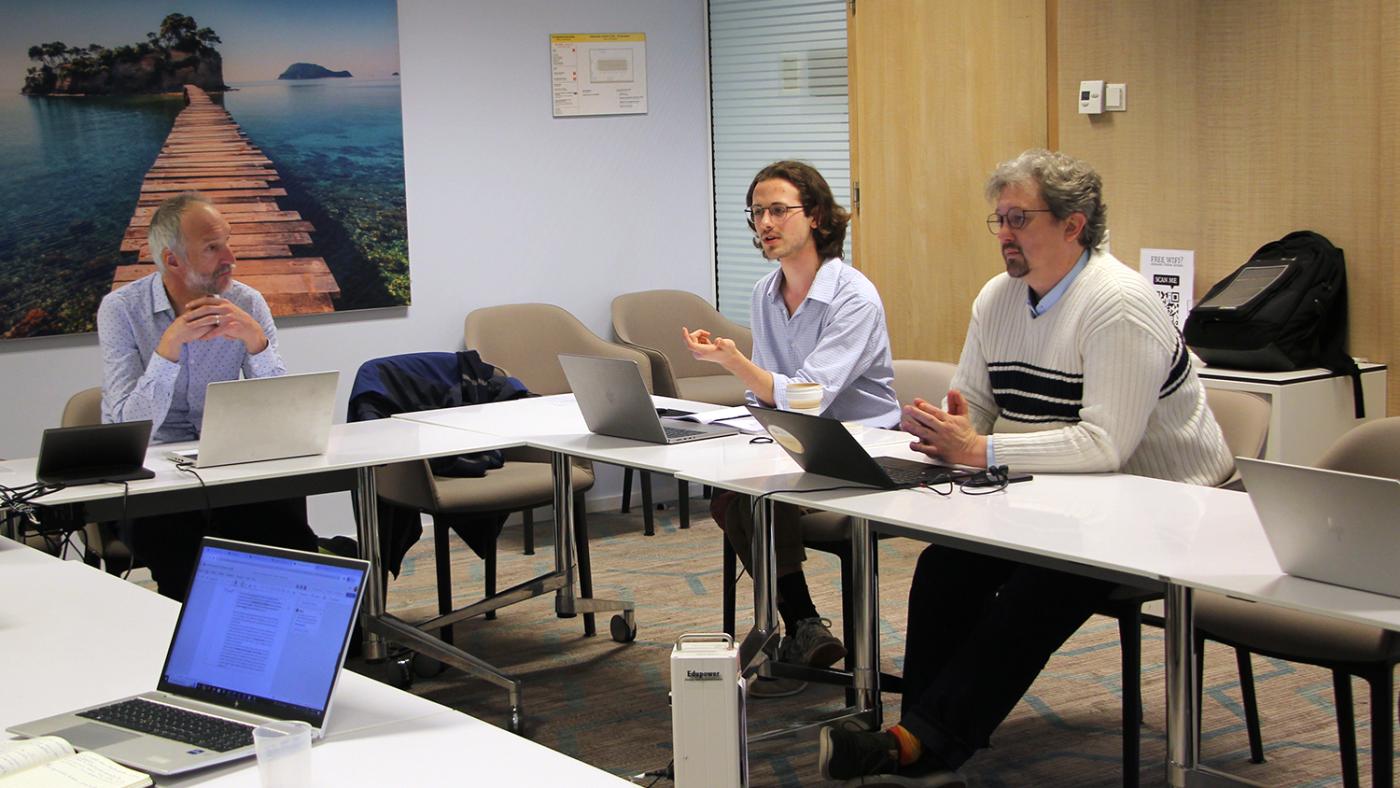
Matias Edelstein during a meeting of the University Council. Photo: DUB
Apathetic
Some question how representative of students the University Council really is, given that turnout in the elections is pretty low. Year after year, the University Council struggles to find new student candidates. Although voting turnouts increased from 11 percent (2022) to 14.1 percent (2023) they don’t come close to previous years, with 26.8 percent in 2018 and 26.3 percent in 2017. Since 2022, students can only choose between two parties, Vuur and PvdUS, because UUinActie and De Vrije Student were unable to find candidates and stepped out of the elections.
How to improve student engagement is “the million-dollar question”, says Edelstein. His counterparts Pappalardo, Janse and Claire Bruls (Vuur) agree that most students are virtually apathetic to what happens at the university. In their view, this is partly influenced by the council’s lack of visibility, which they attribute to several factors, like not being able to promote the elections inside lecture halls. The council members also complain that they are not allowed to hand out flyers without getting permission first. “So, your own organisation is working against you while you are representing that organisation,” says Janse.
Asked by DUB to comment on this complaint, UU states that handing out flyers is prohibited due to sustainability considerations but the University Council, the faculty councils and employee consultative bodies are exceptions to this policy. According to the university, the council was only approached while handing out flyers once, last year, by a security employee unaware of the exception. To prevent the problem from happening again, this year council members will receive a letter stating that they have permission to hand out flyers from the Executive Board. Furthermore, the university stresses that, although council members are not allowed to hand out flyers inside lecture halls, they can promote the elections verbally.
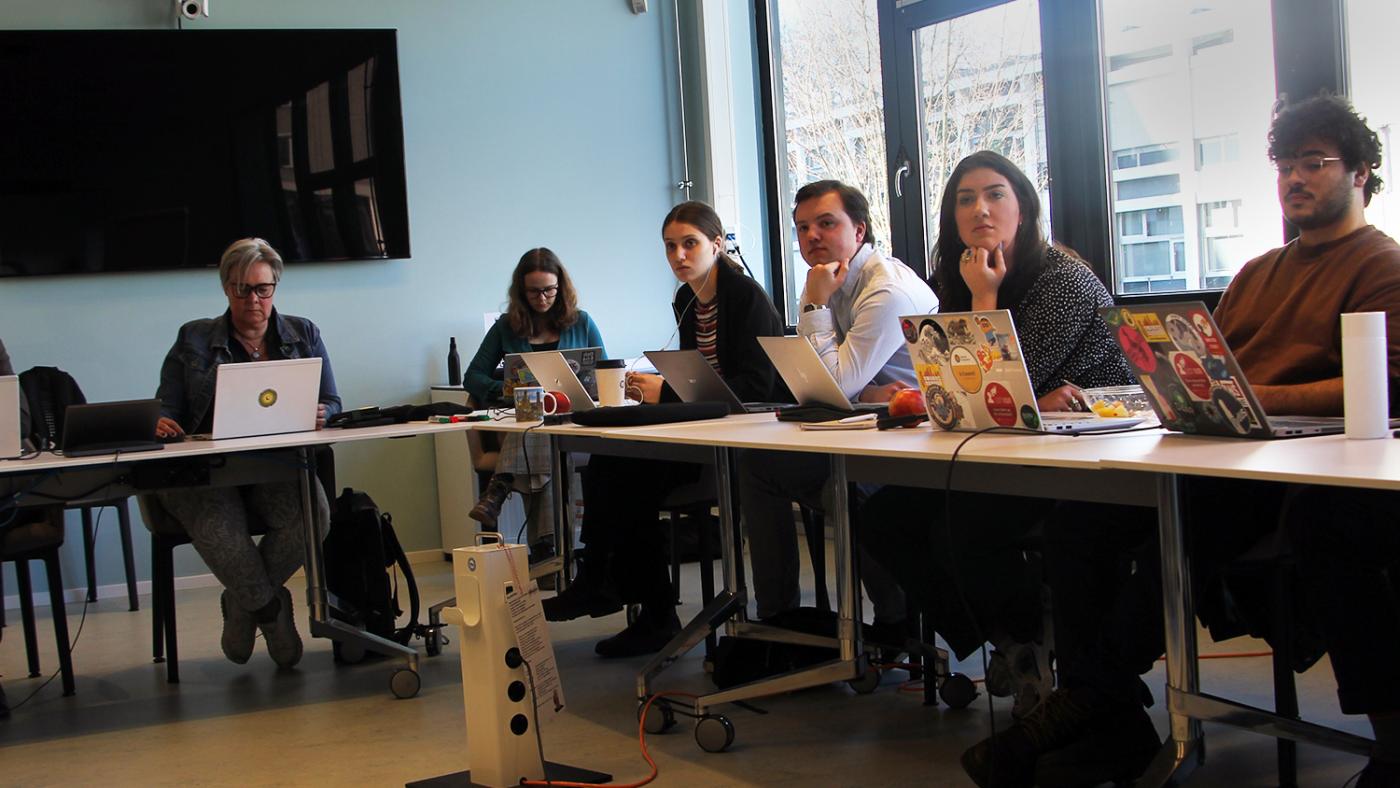
Teresa Pappalardo, Stan Janse and Claire Bruls during a meeting of the University Council. Photo: DUB
Broader societal factors influence turnout as well, according to the council members. “We should ask why, in the past five years, every university in the country is failing to engage students like they used to. Why do the institutions do not feel responsible for this?” ponders Edelstein. In his experience, universities are becoming increasingly fragmented from society and the weakness of representative bodies reflects that. “If the university feels like a ‘world apart’ from society, why should students invest in it over other opportunities?”
Housing is another important aspect to consider, says Pappalardo. Despite feeling at home at UU for the most part, many students do not find accommodation close to the university, so they have been spending more and more time away from campus. “When students feel their lives outside of education are separate from the university, there is little motivation to be involved in change or even just inform themselves about developments at the university”, she says. Janse agrees. He finds that students these days tend to act like customers, only coming in for classes and leaving immediately after.
Furthermore, the increasing demand for online classes following the pandemic may have influenced the turnout negatively. In 2021, at least 50 percent of UU students stated that they see online education as a positive addition to their programme. The “Covid generation” would have a lessened connection with the university as a result.
However, the four council members underscore that the low turnout also reveals something positive: that a considerable number of students are satisfied with the university. The data backs this up: both in 2022 and 2023, students gave their study programme and UU as a whole a score of 4 out of 5.
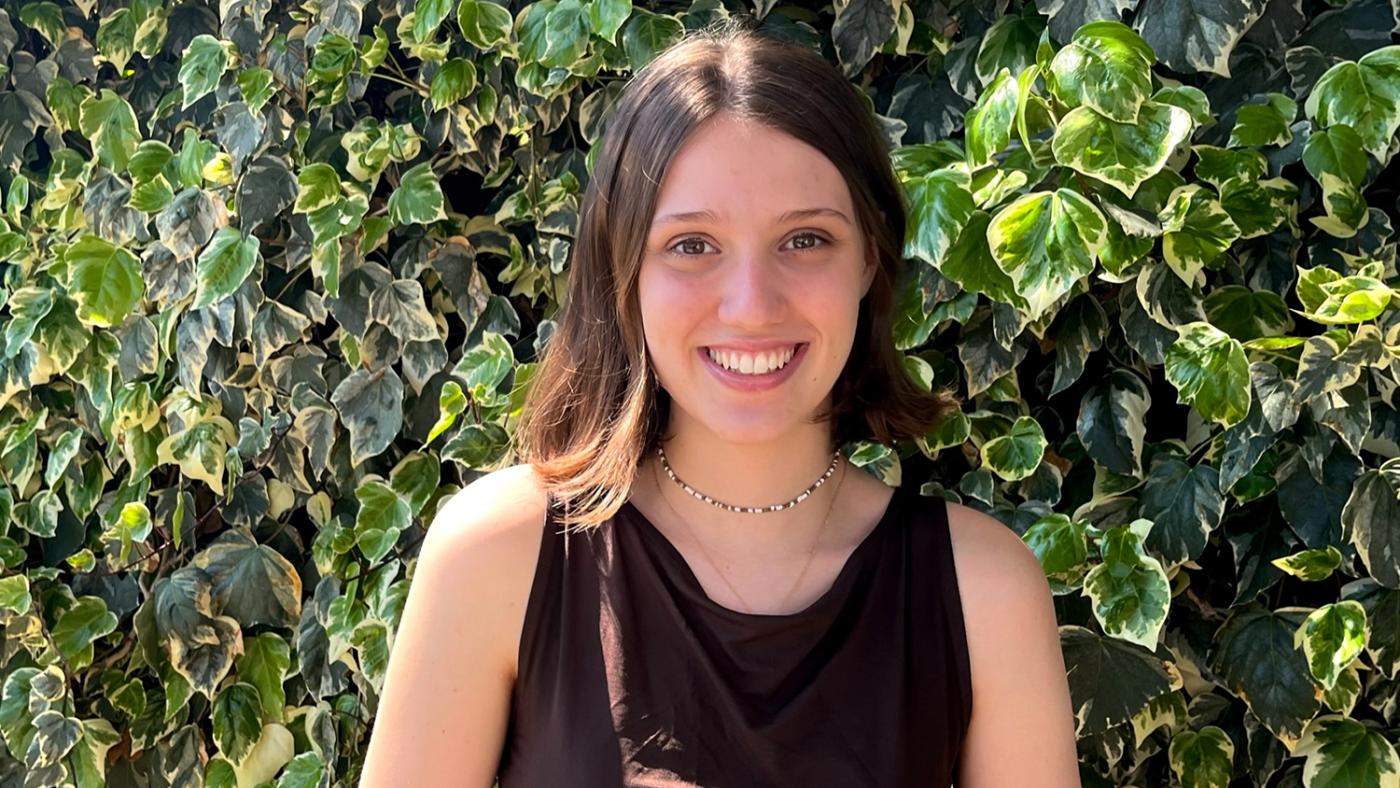
The UU council member Teresa Pappalardo. Photo: courtesy of the student
By chance
One cannot help but wonder how Edelstein, Pappalardo, Bruls and Janse became interested in the council to the point of running for a seat. Most of them found out about it by chance. Edelstein overheard a conversation between two other students while waiting for a class, while Janse met a council member who was looking for a successor at a party. Bruls and Pappalardo both heard about the council from friends. Based on their own experiences and observations, the four students conclude that their peers rarely learn about the council through the institution itself, but rather by interacting with other students.
According to Edelstein, financial considerations might be keeping students from presenting themselves as candidates, especially at the faculty council level. While the four council members consider themselves well-compensated (following demands for higher wages, fewer working hours, and more support in 2022, the university increased their compensation substantially last year: in addition to a monthly compensation of 709 euros, they are now paid 74 percent of their tuition. This means that their compensation is adjusted to tuition fees), they note that the same does not apply to other student representatives, such as those in faculty councils. “If you want to become a student representative, you can’t be in a financially precarious situation,” argues Edelstein.
Another reason for the low number of candidates is the fact that students often find out about councils too late in their studies, when they have already settled into schedules that offer little flexibility. Students in their third or fourth years are less inclined to dedicate an entire year to the council, the four students observe.
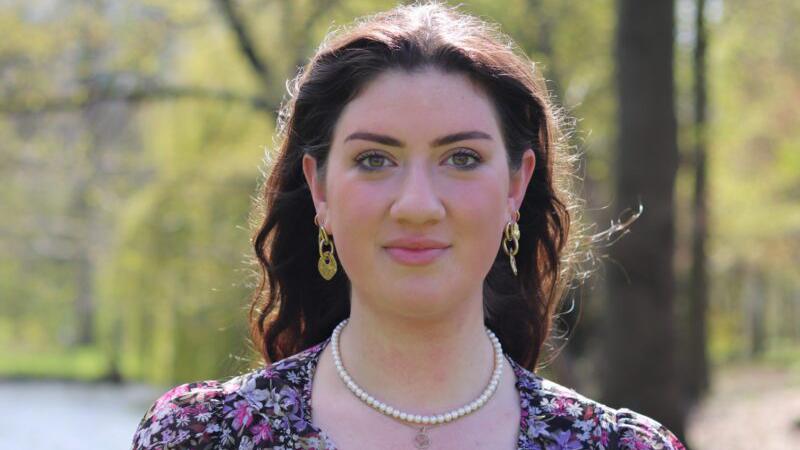
The UU Council member Claire Bruls. Photo: courtesy of the student
“We’re not policymakers ourselves”
The four students underscore that, due to the size and structure of the university, quick changes can be difficult to realise, but that’s something the student community doesn’t always understand. Edelstein and Janse stress that council members are mainly there to bring forward the concerns and issues of students and employees, but they are not policymakers. Student members only have the right of consent for the budget and the Education and Examination Regulations (Dutch acronym: OER).
The students who occupied the library’s dining hall asked for the student community to have more influence on the decision-making process. Edelstein and Pappalardo agree that this would be positive from a student perspective. However, “from a legal perspective, co-participation is not about having a democratic parliament with decisional power, but rather an advisory representative body”, notes Pappalardo. In Edelstein’s eyes, “the council would be more influential if it were genuinely supported and relevant to the student body” as is.
To ensure council members represent students’ interests, Edelstein stresses the importance of communicating with student groups. He regularly attends their meetings to keep himself and the council up to date. However, since these meetings happen after hours, his working hours often range between 40 to 45 hours instead of the contractual 28 hours.
Janse notes that the students who join the council and then become disappointed often come into it thinking they can transform the university. In reality, most changes are initiated by members of a certain year and then actualised by other members, a year or more after. “Instead of thinking what can I do in a year, you should be thinking what kind of start can I make to make it better for my successor”, says Janse.
All four students agree that one year is rarely enough to implement changes, yet they don’t see any other option: if council members had to serve for longer, even fewer students would be interested in running for a seat.
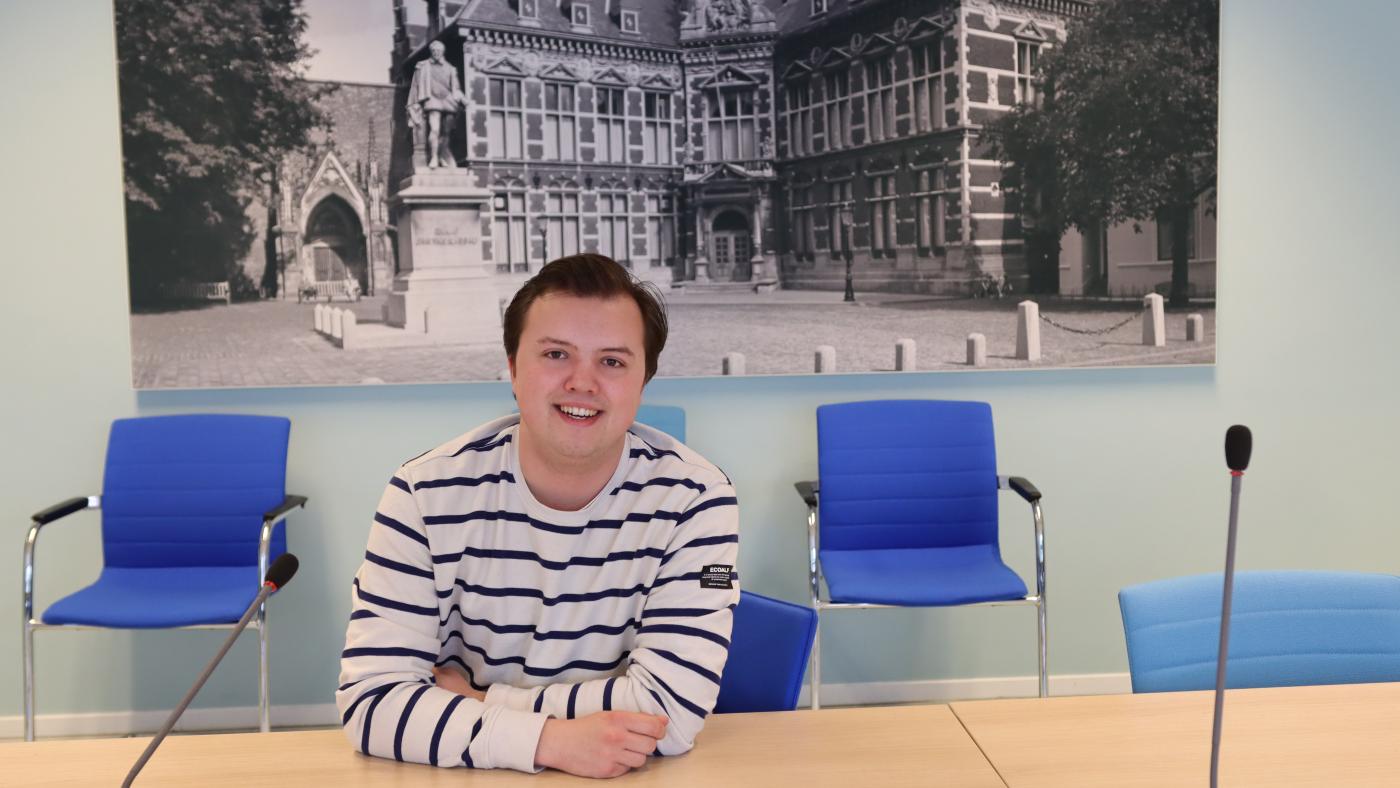
Stan Janse from PvdUS photo DUB
So… How to make UU more democratic?
Although the four council members find that democracy does exist at UU, there is certainly room for improvement. Bruls suggests mandatory events, like lectures or workshops, connected to first-year courses to inform students about the existence of the council and how it operates. This could be done towards the end of the first term when students have already settled into their studies and feel more connected to the university than absolute freshers.
Pappalardo notes that teachers play a big role in students’ decisions. The support of familiar authority figures could raise students’ interest in voting or even becoming a council member. Teachers could, for example, include reminders to vote at the end or beginning of their lectures.
Edelstein adds that the PR aspect needs improvement as well. In 2022, the Executive Board announced that one communication employee would help spread the word about the council. Although this has been implemented, the council members find that they need more structured PR support, such as a department solely responsible for promoting the council and its elections. “There must be a certain will from the organisation to recognise and value the council to the extent that you are putting in money to promote it”, says Edelstein. Pappalardo adds: “So many tools that could make a difference, such as the MyUU app, are not willing to collaborate.”
The elections will be held from May 13-15. Are you interested in running for a seat? You have until April 11 to put yourself forward as a candidate.